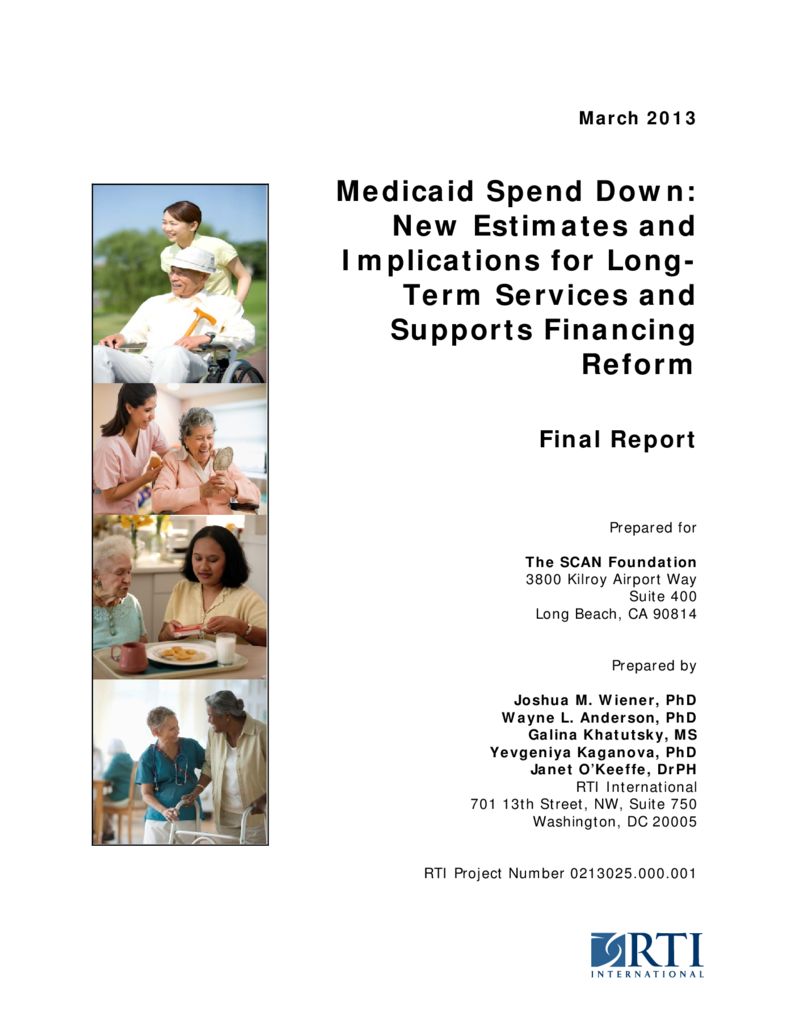RTI International: Medicaid Spend Down–New Estimates and Implications for Long-Term Services and Supports Financing Reform
summary
Medicaid provides an important safety net for people who are poor or become poor, either because of the high costs of health and long-term services and supports, or for other reasons. The transition from non-Medicaid to Medicaid status can be difficult, especially since it is often associated with illness, disability, and declining income and assets.
Date Updated: 03/20/2013The high cost of long-term services and supports results in catastrophic out-of-pocket costs for many people needing services, some of whom spend down to Medicaid. For people who have been independent all of their lives, transitioning to Medicaid means depending on a means-tested welfare program for their health and long-term services and supports. Moreover, spending for people transitioning to Medicaid is a substantial portion of state Medicaid expenditures.
Continue Reading
This policy brief provides an introduction to The SCAN Foundation’s CLASS Technical Assistance Brief Series, which explores many of the critical issues to be considered for successfully implementing CLASS.
This policy brief describes the broad needs of individuals with disability and the wide range of supportive and environmental solutions that can allow for the most independent living possible. It suggests how findings on social and environmental supports for individuals with disability can inform implementation of CLASS.
This policy brief provides background on the historical development of benefit eligibility triggers in the private long-term care insurance market. Understanding how these triggers came into being can provide important information to those charged with implementing the CLASS Plan.


